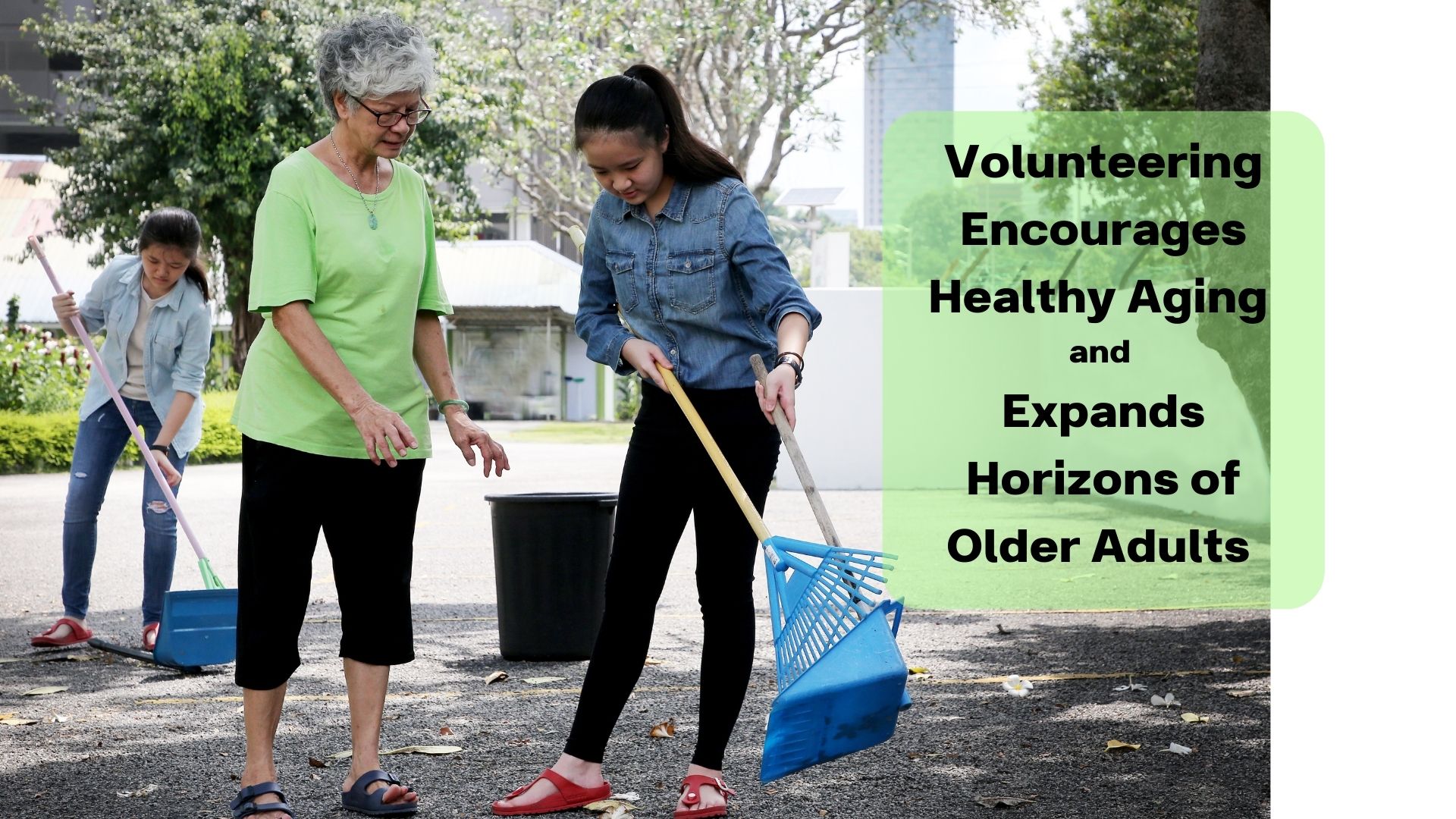

Volunteer Canada’s report, “Volunteering and Older Adults,” contains some fascinating and affirming statistics and information on next stage of life volunteering. As the report is long and detailed, we have provided some highlights below to inspire and inform older people who are thinking of volunteering.
Volunteering helps older adults stay active and connected to their communities, it helps maintain social contacts, and it promotes a sense of value and self-worth.
The health benefits of volunteering add up to a myriad of reasons to continue volunteering or to add volunteering to your life. Volunteering encourages healthy aging. It is a great way to stay active and engaged.
In addition to the invaluable contributions that older adult volunteers make in communities, the act of volunteering also makes an invaluable contribution to their health and well-being.
Older adults:
- bring unique perspectives
- have rich experiences from their paid work and community involvement
- want a variety of ways to participate and stay involved
- bring their personal talents and interests, professional skills, and education to help respond to needs in their community
- turn to volunteering to launch into new directions completely.
Communities are stronger through volunteering and civic engagement. Social bonds are formed when individuals work together and share stories and experiences. Volunteering provides the opportunity to work jointly on programs and projects while achieving mutual goals and objectives.
Research shows numerous health rewards and social benefits of volunteering for older adults, including:
- enhances well-being; contributes to an active lifestyle; enhances physical well-being
- is an important choice of leisure activity because it benefits the community, the non-profit organization and the volunteer
- improves emotional or psychological and brain or cognitive health
- enriches emotional health
- provides particular social health advantages.
Expanding on some of these benefits:
- Physical Health Benefits:
-
- volunteers report better physical health when compared to non-volunteers
- volunteering is associated with better self-reported health and physical functioning and lower mortality
These findings are great news because other research indicates that retirement tends to decrease the level of physical activity needed for a healthy lifestyle, so older adults need to find ways to be more active. Volunteering is a really good choice.
- Psychological Health Benefits:
-
- Mary Ann Murphy, Professor of Sociology and Social Work at the University of British Columbia, at the Okanagan Valley Campus, found that volunteering can be one of the most empowering activities as it focuses on the strengths that one has to offer as opposed to needs.
- Volunteers report lower rates of stress, anxiety and depression and this translates into better psychological health.
- Volunteering provides a more defined sense of purpose and meaning.
- Volunteering enhances quality of life and life satisfaction.
- Volunteering is associated with higher levels of self-esteem as well as lower reports of loneliness and isolation.
- Social Health Benefits of Volunteering:
-
- develops new social relationships through meeting people
- expands your social network and enhances connection to the community and the resources within your community
- provides enhanced emotional and instrumental support during times of crisis, illness or stress
- increases quality of life
- activates the brain in social situations where you are helping other people
- contributes to emotional health and well-being.
Civic engagement benefits individuals, the community and society as a whole.
For individuals, it:
-
- helps them develop and maintain a social, collective identity
- contributes to social inclusion and to feelings of empowerment
- older adults stay connected to others in society including those from other generations.
- Brain and Cognitive Health Benefits of Volunteering –– Research Indicates:
-
- Volunteering is a good way to keep your brain sharp, active and healthy.
- Volunteering can help older adults stimulate their brains as they learn skills and gain new knowledge.
- Regular leisure and work-related activity that is cognitively, physically, and socially stimulating is actually good for overall brain health.
Based on research, volunteer roles that require physical activity, engage your brain and provide social interaction are especially good for you because multiple area stimulation appears to reduce the risk of dementia and promote brain health.
The brain is involved in feeling as well as thinking, and this means that finding meaning and purposeful activity is particularly important. This can be accomplished through volunteering by finding roles that are personally meaningful.
Additional Benefits to Older People Volunteering:
-
- skill and career development
- being able to make a contribution to others and feeling useful are both huge psychological boosts to self esteem and self-worth.
Older adults are doing important work with non-profit organizations.
Volunteering is a meaningful occupation that provides direction as well as purpose and passion, just like the fulfillment that comes from meaningful paid work.
Volunteering is about building relationships – it connects people to the causes they care about and allows community outcomes and personal goals to be met within a spectrum of engagement.
The above report summary comes from Volunteer Canada’s website page for older adults.


